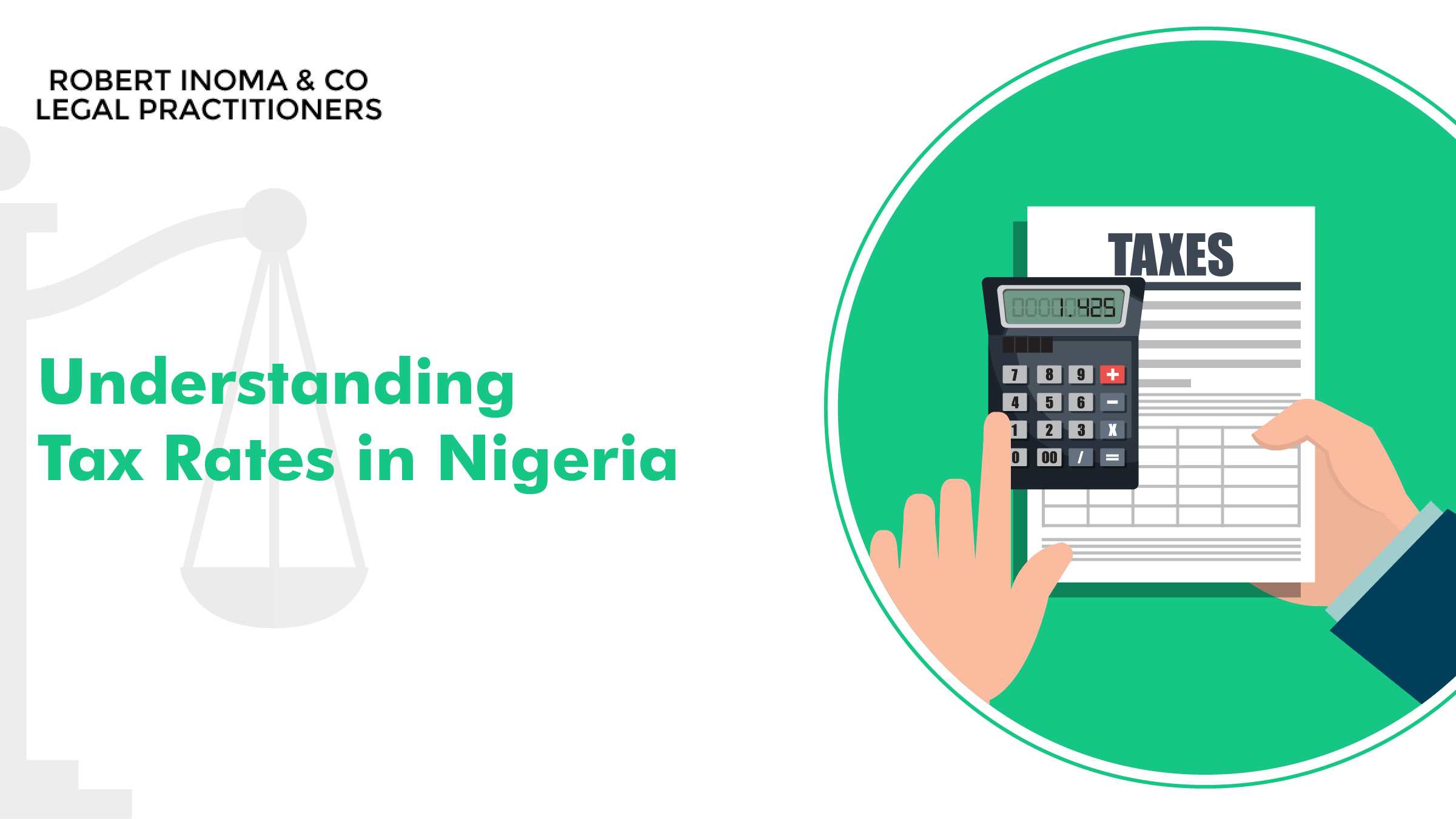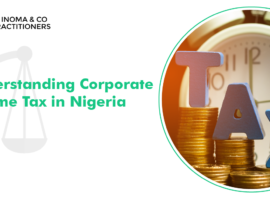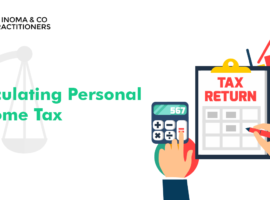Understanding Tax Rates in Nigeria
Every individual and business venture in Nigeria is mandated by law, to pay taxes. Taxes are financial charges imposed by the government to provide social amenities, infrastructures and improve the overall economy of the country. Tax payment is a civil responsibility, and defaulters are punished by law.
The government makes use of taxes to generate revenue and meet up with the public’s continuous needs such as water, electricity, health care, education, and others. By understanding the different tax rates in Nigeria, you would be able to avoid tax default and its penalties and understand why some fees are automatically deducted from your account. Below are some type of taxes in Nigeria.
Contents
Personal Income Tax (PIT)
Personal Income Tax (also called PIT) is a tax charged on the income of all employees in Nigeria. Anyone who receives income in Nigeria, either as a contractor or full-time employee is expected to pay the Personal Income Tax (PIT). In Nigeria, PIT is administered and collected by the State Government. The tax is regulated by the Personal Income Tax Act Cap P8 LFN 2004 (as amended). Personal Income tax is of two types; Pay-As-You-Earn (PAYE) and Direct Assessment. PAYE is deducted by the employer before salaries are paid, and remitted on the due day to the respective State Government Inland Revenue Service. Direct Assessment on the other hand applies to self-employed individuals. Once in a year, all PIT returns for the year must be remitted to the state. The current rate of PIT ranges from 1% to 24% depending on the income of the individual.
Company Income Tax (CIT)
Company income tax (also called CIT) is a tax imposed on the profits of all registered companies in Nigeria. It also applies to foreign companies who carry out any form of business in Nigeria. CIT is administered and collected by the Federal Inland Revenue Service (FIRS). It is regulated by the Companies Income Tax Act (CITA), Cap. C21, LFN 2004. Company income tax (CIT) is fixed at a 30% rate. Every registered company in Nigeria must pay 30% of all its profit regardless of its source to the FIRS. It is usually paid on a preceding year basis.
Value Added Tax (VAT)
Value Added Tax (also called VAT) is a charge on the sales of goods and services in Nigeria. There are however some few goods and services that are exempted from VAT. VAT is known as a consumption tax because it is borne by the final consumer. The current VAT rate in Nigeria is 7.5% as of the time of writing. The FIRS administers and manages the payment of VAT in Nigeria. The tax is regulated by the VAT Act and the VAT (Amended) Act 2007. VAT was a 5% rate initially but increased in 2020 after the Federal Government of Nigeria approved a 50% increase on the tax, thereby raising the VAT rate from 5% to 7.5% in Nigeria.
Capital Gains Tax (CGT)
Capital Gains Tax (CGT) is similar to personal income tax in Nigeria. CGT is a tax imposed on all the profits derived from the sale of an individual’s non-inventory asset. This tax applies to the sales of real estate property, stocks, bonds, and others. The tax is calculated on the amount of profit made from the sale of an asset in Nigeria. Capital Gains Tax is charged at 10% on all chargeable assets. CGT is regulated by the Capital Gains Tax Act, Laws of the Federation CAP C1 LFN, 2004.
CGT is charged on any capital sum or income derived from the lease, transfer, acquisition, or sale of any chargeable asset in Nigeria. CGT is, however, not applicable to assets connected to trades in an organization or charitable and educational institutions in Nigeria. CGT is also administered by the FIRS as well as the States Internal Revenue Service.
Withholding Tax (WHT)
Withholding tax is mainly used for transactions involving a contract of purchase such as a company selling goods or services to another company. It is basically an advance and indirect source of taxation deducted at source from the invoice of the taxpayer. The main purpose of WHT is to capture as many taxpayers that may have evaded tax into the tax net and the rate is usually 5%-10% depending on the type of transaction. WHT is not really a distinct tax type and therefore has no legislation of its own. It is only a mechanism for the collection of other taxes. Consequently, its application is provided for in the enabling law of other tax types i.e. Section 81 of the Company Income Tax Act or Section 13 of the Value Added Tax Act.
Stamp Duties
Another type of tax in Nigeria is Stamp Duty. It is the charge imposed by the government on written and electrical legal documents, transfer of assets, and other transactions in Nigeria. It is regulated by both the Stamp Duties Act, CAP S8 LFN 2004, and the Federal Government Financial Regulations 2009. Individuals pay stamp duties to the State government while corporations pay to the federal government. Stamp duties are therefore administered by both the FIRS and the States Internal Revenue Service. Under the Federal Government Financial Regulations (2009), stamp duties are also to be paid when amounts above N1000 are deposited into a bank account. The stamp duty rate on bank accounts is at the flat rate of N50 per applicable transactions. Although financial stamp duties on bank accounts were in existence since 2009, it became enforced in 2020.
Custom and Excise Duties
Custom and Excise Duties are taxes charged on some imported goods at the Nigeria Port of Entry. Custom and Excise Duties are of two types. One is a charge on certain imported goods while the other is on certain exported goods in Nigeria. The Custom and Excise Duty Tax is usually imposed to discourage the consumption of certain goods in Nigeria. It is also imposed to generate revenue. The Custom and Excise Duties is administered by the Nigerian Customs Service and regulated by the Customs and Excise Management Act. It is sometimes referred to as a consumption tax
Hotel Occupancy and Restaurant Consumption Tax:
As the name implies, this tax is imposed on the goods and consumed in places such as hotels, bars, restaurants, and event centres by the State Government. It is also a consumer tax, and payable by consumers who purchase goods and services in such places. This tax is administered by the respective State Internal Revenue Service (e.g Lagos State Inland Revenue Service). Places such as hotels, bars, restaurants, and event centres serve as collecting agents for the state.
Every citizen, resident, or business partner in Nigeria has the duty to pay their required taxes. Tax evasion or default is punishable by law. To avoid issues with the FIRS or State Internal Revenue Service, you need to pay all taxes at the appropriate time. Robert Inoma & Co offers tax consultancy and guidance to tax payers for both individuals and corporate organizations in Nigeria. We also offer free Patent and trademark registration, as well as protection on other intellectual property rights in Nigeria. Visit www.robertinomalaw.com to get started today.




